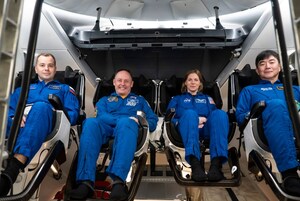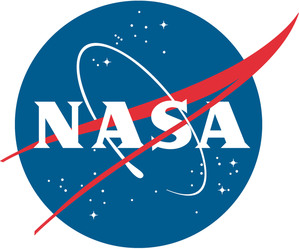
WASHINGTON, June 7, 2012 /PRNewswire-USNewswire/ -- The public is invited to a free lecture about how water use is being mapped from space to be presented at the Library of Congress.
(Logo: http://photos.prnewswire.com/prnh/20081007/38461LOGO)
Research scientist Martha Anderson will discuss "Mapping Water Use from Space" at 11:30 a.m. on Thursday, June 14, in the Mary Pickford Theater on the third floor of the James Madison Building, 101 Independence Ave. S.E., Washington. The event is free and open to the public. Tickets are not needed.
Access to water is a daily issue of life or death in many parts of the world, and it is essential for healthy crops wherever they are grown. Water is central to the economies of U.S. western states, and legal battles over fresh water there have been common for many years. Now the means to objectively measure and map water use with observations from space-based satellites has been discovered, and as it moves from innovation to everyday operations, a revolution in practical water monitoring is underway.
"I'll be discussing mapping techniques and uses for satellite-derived evapotranspiration, providing examples in western U.S. water management, drought monitoring, and international applications in food and water security," Anderson said. Martha Anderson is a research physical scientist at the USDA's Agricultural Research Service, Beltsville, Md.
Research scientists have learned to measure the exchange of water vapor between the land surface and the atmosphere, or what's called evapotranspiration (ET), by using observations from space. ET is made up of the water that's evaporated directly from surfaces plus the water evaporated from leaves in a process called transpiration. Transpiration uses energy, so vegetation with access to sufficient water appears cooler than vegetation under water-limited conditions. Detecting this difference from space can help with monitoring drought, managing water, planning for irrigation, and predicting crop yield, all key areas for farming and natural resource management.
The illustrated lecture, the fourth in a series of programs in 2012, is presented through a collaboration between the Library's Science, Technology and Business Division and NASA Goddard Space Flight Center, Greenbelt, Md. The collaboration is in its sixth year.
Martha Anderson is a research physical scientist for the USDA Agricultural Research Service in the Hydrology and Remote Sensing Laboratory in Beltsville, Md. She received her Ph.D. in Astrophysics from the University of Minnesota, Minneapolis in 1993, with a dissertation on cosmic ray acceleration in galactic supernova remnants. Her interests in environmental issues then steered her toward postgraduate research in Earth observation using satellites, and led her to international collaborations in monitoring water resources around the world. Her research interests focus on mapping water, energy, and carbon using observations from space-based sensors. She served as a member of the Landsat Science Team from 2006 to 2011, and recently co-edited a book entitled, Remote Sensing of Drought: Innovative Monitoring Approaches.
The Library of Congress maintains one of the largest and most diverse collections of scientific and technical information in the world. The Science, Technology and Business Division provides reference and bibliographic services and develops the general collections of the Library in all areas of science, technology, business and economics. For more information, visit www.loc.gov/rr/scitech/.
The Library of Congress, the nation's oldest federal cultural institution and the largest library in the world, holds nearly 151.8 million items in various languages, disciplines and formats. The Library serves the U.S. Congress and the nation both on-site in its reading rooms on Capitol Hill and through its award-winning website at www.loc.gov.
For inquiries about this or upcoming talks at the Library of Congress, the public can contact the LOC Science, Technology and Business Division at 202-707-5664. ADA accommodations should be requested five business days in advance at 202-707-6382 (voice/tty) or [email protected].
For more information about Landsat satellites, visit:
SOURCE NASA







Share this article